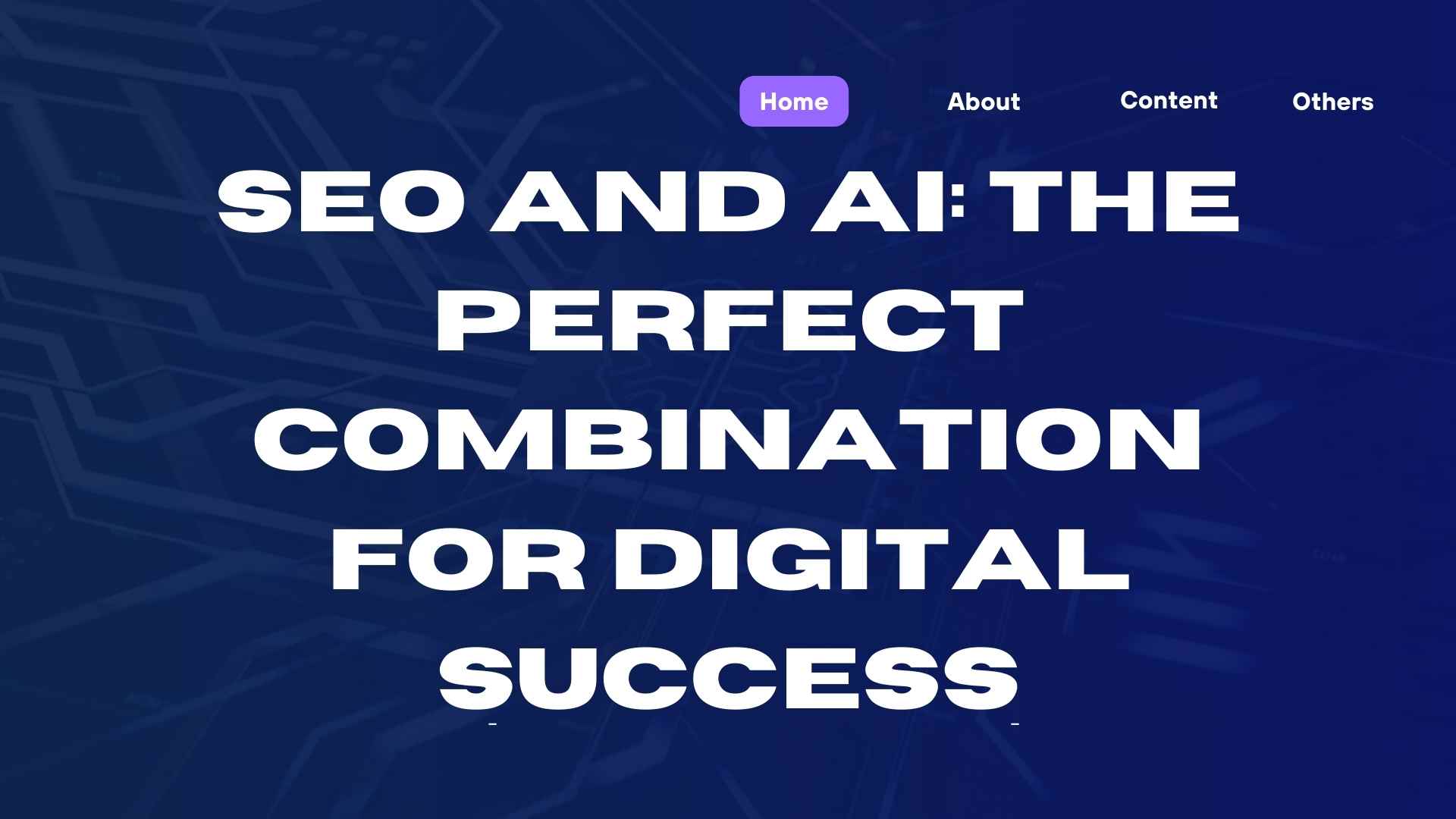Search Engine Optimization (SEO) has always been a critical part of digital marketing. However, with the advent of Artificial Intelligence (AI), SEO strategies have evolved significantly. AI has the power to analyze vast amounts of data, recognize patterns, and make decisions that can optimize website performance in search engine rankings. This article explores the combination of SEO and AI, how they complement each other, and how businesses can leverage them for maximum impact.
Understanding SEO
SEO refers to the process of optimizing a website to rank higher in search engine results pages (SERPs). It involves multiple techniques, including keyword research, content optimization, link building, and technical SEO. The goal of SEO is to increase organic traffic, improve user experience, and boost conversions.
The Role of AI in SEO
AI has transformed how search engines rank websites. Google’s AI-driven algorithms, such as RankBrain and BERT, analyze search queries and content to deliver the most relevant results. AI helps in several SEO aspects, including:
- Keyword Research: AI-powered tools can analyze search trends and suggest the best keywords.
- Content Creation: AI can assist in generating high-quality content based on user intent.
- Technical SEO: AI helps detect issues like broken links, page speed optimization, and mobile responsiveness.
- User Experience (UX) Optimization: AI analyzes user behavior to improve website experience.
How AI Enhances Keyword Research
Traditional keyword research involved manual analysis of search volume and competition. AI tools like SEMrush, Ahrefs, and Google Keyword Planner provide predictive insights by analyzing user intent, long-tail keywords, and related search queries. AI ensures that websites target the right keywords for higher ranking.
AI-Powered Content Creation
AI-driven content generation tools such as GPT-based models help in creating engaging, relevant, and optimized content. These tools can:
- Generate blog post ideas based on trending topics.
- Optimize content for SEO by suggesting keywords and readability improvements.
- Analyze competitors’ content and provide recommendations for better engagement.
AI in Technical SEO
Technical SEO involves optimizing website structure, speed, and performance. AI tools like Screaming Frog and DeepCrawl automate audits to identify and fix:
- Slow page speed issues.
- Mobile usability problems.
- Indexing and crawling errors.
- Schema markup and structured data issues.
AI and Link Building
AI-driven tools help identify high-authority backlink opportunities, monitor competitors’ backlink profiles, and analyze link quality. AI can automate outreach campaigns, making link-building efforts more efficient and result-driven.
AI for User Experience and Engagement
Search engines prioritize user experience (UX) in ranking algorithms. AI analyzes user behavior, session duration, bounce rate, and engagement metrics to suggest improvements. AI-powered chatbots enhance UX by providing instant support, improving dwell time, and reducing bounce rates.
Voice Search and AI
With the rise of voice search, AI-powered voice assistants like Google Assistant, Siri, and Alexa have changed how users search for information. AI optimizes content for voice search by focusing on natural language processing (NLP) and conversational queries.
AI and Local SEO
For businesses targeting local audiences, AI enhances local SEO by optimizing Google My Business listings, analyzing customer reviews, and predicting search trends based on location-based queries. AI helps businesses rank higher in local search results and attract more customers.
Future of SEO and AI
The integration of AI in SEO is expected to grow further. Future trends include:
- Advanced AI-driven content creation tools.
- Smarter voice and visual search optimizations.
- AI-powered predictive search capabilities.
- Enhanced personalization in search results.
Conclusion
The combination of SEO and AI is a game-changer for digital marketing. AI-powered tools enhance keyword research, content creation, technical SEO, link building, and user experience. Businesses that leverage AI-driven SEO strategies will gain a competitive edge, drive more traffic, and achieve higher search engine rankings. As AI continues to evolve, staying updated with the latest SEO trends and AI advancements is crucial for online success.
